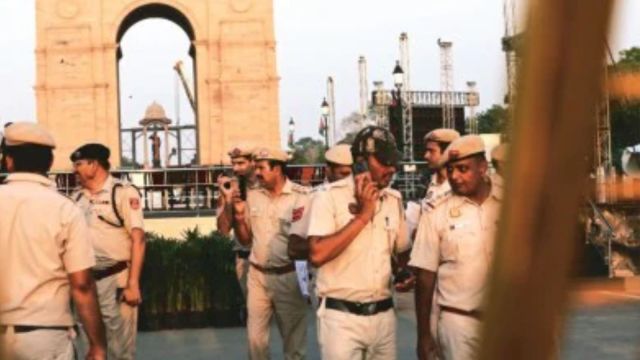Delhi’s drug problem is like the Greek mythological Hydra — cut off one source of supply and another one soon pops up elsewhere, leaving the Delhi Police in a fix. For the past year, however, they have been trying another tactic. Apart from raids and arrests, police are trying to nip the problem in the bud by keeping an eye on repeat offenders who get out on bail.
How do they do this? Officers said they carry out ‘financial investigations’ to see if the accused has amassed assets — money and property — through ill-gotten ‘drug money’ — and swoop in to seize them after relevant approvals.

To date this year, police have carried out financial investigations on around 24 accused persons; the probe is under process for six others. So far, police have frozen over Rs 3 crore worth of assets in bank accounts, property and vehicles.
Data with the Delhi Police shows that up to November 30, 1,169 cases were registered under the Narcotic Drugs and Psychotropic Substances Act, 1985, in which 1,598 people have been arrested. This is less than last year’s figure which saw 1,325 cases and 1,736 arrests. A total of 670 seizure cases for peddling and selling drugs were registered and 499 cases for consumption of drugs this year.
Their other tactic, officers said, is to alert civic agencies with regard to houses or places from where drugs were being made or supplied. Some buildings and houses were revamped and not in line with the building bylaws, after which the civic agencies demolished them. Around 20 such demolitions took place in the last year or so, said an officer on condition of anonymity.
In April 2023, Delhi L-G V K Saxena had issued directions to this effect. To deter drug cartels, the L-G asked police and other agencies concerned to seal buildings being used for drug peddling and begin proceedings for their demolition.
Here is an example of how a typical financial investigation works:
In February this year, Lokesh Dhingra, an alleged drug peddler, was arrested by the Crime Branch.
Story continues below this ad
Police officers probing his case told The Indian Express: “He was in touch with a man based in Russia who used to place orders on the Dark Web for hydroponic weed supplied from California and sent via courier to Delhi. Initially, when we had arrested Dhingra, we had caught hold of the parcel. Since he had used his mobile phone to track it, we had arrested him as technical evidence supported it.”
Dhingra later got out on bail and changed his entire style of operating. Police said he bought old Apple phones from Gaffar Market in Karol Bagh and created Telegram accounts which he gave to other people working with him. He also stopped interacting on his phone completely — he had a person pick up the courier and another deliver it to Noida to avoid the jurisdiction of the Delhi Police. In fact, to even receive the money, he had hired a man, said police.
Dhingra landed in the police net again in July.
“When we had seized his parcel, it had 1.5 kg weed worth Rs 50 lakh. We started tracking all his packages and realised he received 32 packages in three months, making it a turnover of around Rs 50 crore. He had purchased a flat worth around Rs 30 lakh in Gurgaon and three other commercial properties. All have been seized. Apart from this, he had also purchased gold,” the officer added.
Story continues below this ad
According to Sanjay Tyagi, Additional CP PRO, habitual drug offenders have been accumulating wealth from illicit proceeds of crime. “They have no genuine source of income. Generally, they buy properties in someone else’s name. So, the exercise of financial investigation was done to identify their assets and link them to the offenders. It helped in sending out a message that assets obtained from illicit activities will be seized and they will not be able to enjoy the benefits of property. This acts as a big demotivator for offenders and also gives a message to society to stay away from illicit activities,” he said.









